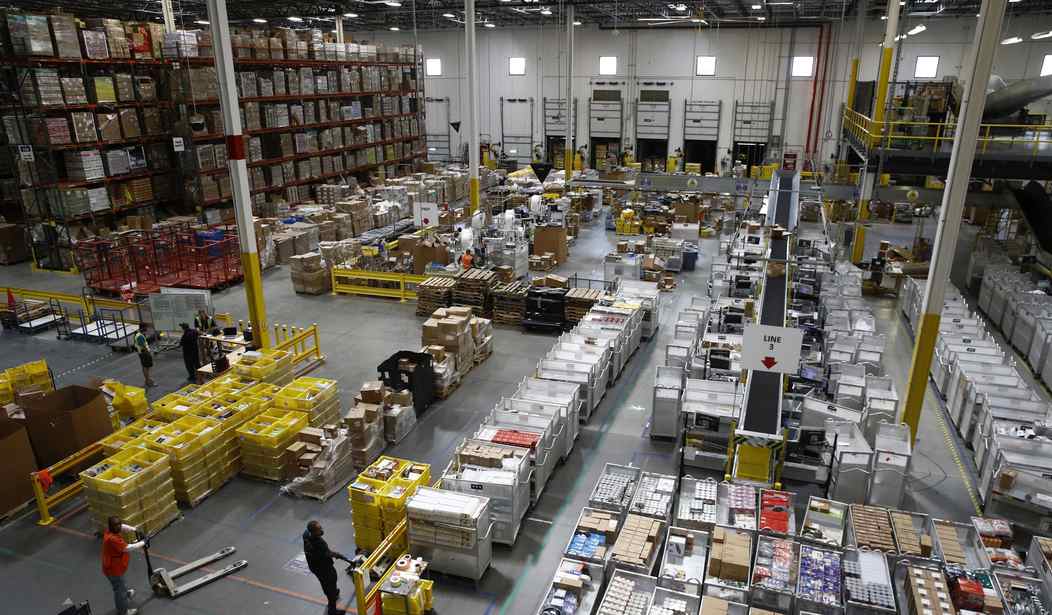Democrats in Congress have again brought the minimum wage to the national political stage.
Legislation moving forward in the House, H.R. 582, the Raise the Wage Act, would increase the national minimum wage from the current $7.25 per hour to $15 per hour in increments spanning the next five years.
Minimum wage is a highly partisan issue, reflecting the very different ways the two parties view economic reality.
When the Pew Research Center surveyed voters during the 2016 presidential campaign, 82 percent of Hillary Clinton supporters favored raising the federal minimum wage to $15 per hour, while only 21 percent of Donald Trump supporters favored the idea.
What drives the difference between the parties?
Some would like to say it's because Republicans are pro-business and Democrats are pro-worker. Some would like to say it's because Republicans are for the wealthy and Democrats are for those with low income.
But I reject this take on things.
The thrust of all my work focuses on improving the lot of low-income Americans.
And I think the minimum wage is a terrible idea.
I operate a business, albeit a nonprofit business.
How do I decide how much to pay employees? I determine what I can afford and then try to get the best people I can at that wage.
Suppose what I decide I can afford is not enough to attract the kind of person I am looking for. I won't get any applicants. I've got to figure out how I can pay more, or if it is viable to hire people less qualified and hope they will learn on the job and then not quit if their salary does not grow with their performance.
In short, these are dynamic and highly personalized calculations between a business owner, workers and the marketplace.
Recommended
How can it possibly work if the government gets involved telling me what I should pay people? It can't work, and it doesn't work.
Minimum wage advocates want to claim that it's different on the lowest rung of the pay scale. But no, it's not different.
Every employer pays as much as he or she can to get the best possible workforce.
If the government sets a floor on what can be paid for a certain kind of job, either the job won't be filled; someone overqualified will do it; or automation will substitute.
There's tons of research on the minimum wage. But the bottom line is common sense. All employers will hire the best workforce they can afford. If government limits what they can afford, the workforce will be constrained.
A new report from the Congressional Budget Office confirms the common-sense conclusion. Although a $15 minimum wage would lift some 1.3 million out of poverty, at the same time, 1.3 million jobs would be lost -- in the mid-range scenario. And 3.7 million jobs would be lost in the worst-case scenario.
This is even giving Democrats pause.
But what is even missing from this analysis is how many would benefit from minimizing government interference in the marketplace altogether, rather than government stepping in and manipulating and distorting the marketplace.
The bread and butter of Democratic politicians is convincing voters that they can make their lives better by expanding government and getting it more involved in private lives.
But data convincingly shows that the most prosperous nations are the ones with the freest economies.
Democrats also cause collateral damage by getting many Americans to believe what isn't true -- that politicians can make their lives better.
The headline of a Wall Street Journal report from a few days ago reads, "A Record Expansion's Surprise Winners: The Low-Skilled." The subheadline reads, "As unemployment remains at near generation lows, the fortunes of low-wage workers have improved markedly."
Want to help those struggling at the bottom? Reduce regulations. Cut taxes. Minimize government interference. And unleash the creative human potential of the free marketplace.
Star Parker is an author and president of CURE, Center for Urban Renewal and Education. Contact her at www.urbancure.org

























Join the conversation as a VIP Member